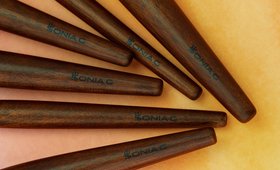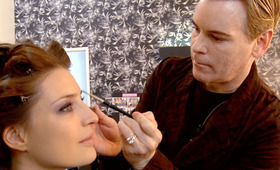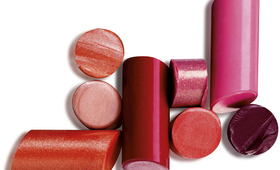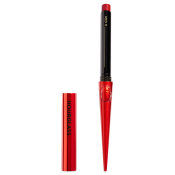
Red is undoubtedly the most classic, universal shade that lives in every woman’s makeup collection. Don’t @ me. No matter the occasion, you just can’t go wrong with an iconic red lip. And rightfully so, the universal shade exudes confidence in just one swipe.
Truly timeless—red lipstick dates back to Cleopatra who is said to have created her own red lipsticks using crushed insects in ancient Egypt. Gross, I know. But here’s the real kicker: crushed insects are still found in cosmetics today. Cochineal beetles, native to Mexico and Central America, are considered a cost-effective method to mass-produce red pigments. This female species of beetles is known to get their red color by eating red berries and is crushed to produce the ruby-red pigment carmine—an ingredient you may recognize from cosmetic labels, paint, and even food and drinks. For context, about 1,000 beetles are crushed to make just one tube of lipstick.
With little transparency and practically no regulations in the beauty industry, it’s up to consumers to research ingredient lists and learn more about what they’re putting on their faces. With the current almost non-existent FDA regulations, cosmetic companies don’t have to disclose ingredients if the concentration is under one percent. Plus, your average consumer may not relate “carmine”, “cochineal extract”, or “natural dyes” to crushed beetles. It’s the industry’s little dark secret that manufacturers quietly sweep under the rug.
If you’re ready to stop smearing bugs on your face, your best bet is to look for and purchase vegan and cruelty-free formulas. Good news: lucky for us, more and more brands are pledging to create them. Not-so-good-news: the more you search, the more you’ll realize that a vibrant red is difficult for brands to recreate. Oftentimes, vegan red lipsticks just won’t have the same bold saturation and intensity we’ve come to expect.
Hourglass took on the challenge and went on the hunt to develop an alternative with zero animal byproducts and zero insects harmed without sacrificing quality and performance. Hourglass worked with its parent company, Unilever, for three years before introducing their first vegan red lipstick. While finding a vegan, cruelty-free carmine replacement with the same high-quality coloration was no small feat, we can only hope that this is just the beginning.
We’re still waiting for carmine-free alternatives to go from being the exception to the new norm. As Hourglass Founder Carisa Janes told WWD, “I think that this will push brands, businesses, and manufacturers to really find vegan alternatives that not only are as good, but potentially can perform better.” As we become more conscious of what we’re buying and using, we can only rest easy knowing our favorite formulations are not only good for our skin but also for animals and the planet as a whole.
Featured Products
You Might Also Like
-

Behind the Brand
The Secret World of Brushmaking: Sonia G. Takes Us Behind the Scenes
- 7
-

Behind the Brand
On the Line with Natasha Denona
-

Behind the Brand
Becoming Too Faced With Jerrod Blandino
- 691
-

Features
Billy B on his Life, Career, and What He Hates in a Brush
- 192
-

Behind the Brand
Behind the Brand: David Klasfeld of Obsessive Compulsive Cosmetics
- 302
-

Lipstick
Anatomy of a Beauty Product: Lipsticks
- 599










